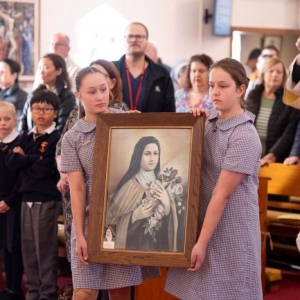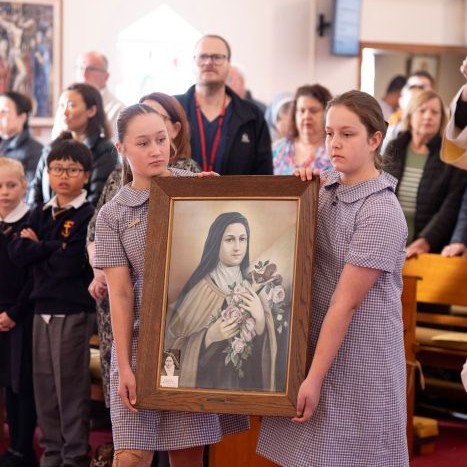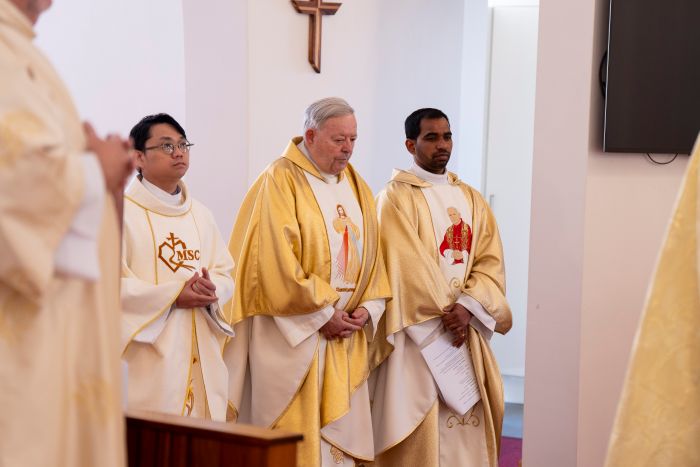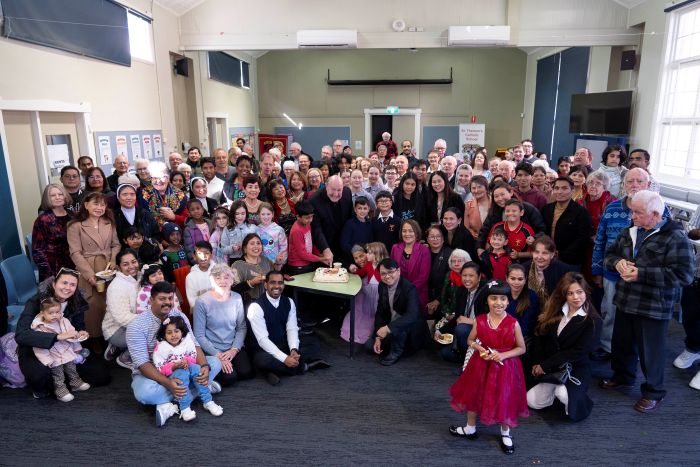Peter MALONE
Mala Influencia/ Bad Influence

MALA INFLUENCIA/ BAD INFLUENCE
Spain, 2025, 104 minutes, Colour.
Alberto Olmo, Elea Rochera, Enriqie Arce, Mirela Balic, Sara Arino,Farid Bechara, Fernando Fraga,.
Directed by Chloe Wallace.
At the centre of Bad Influence teenagers, central character girl, Rhys, still at school, studying ballet, seemingly victim of a stalker and attempts to injure her. In the background are her best friends and various people from school, including a rather demanding boyfriend.
In fact, this film is based on an online novel on Wattpad which, according to publicity, has been read online by 51 million readers. Which means then that the film is geared towards this audience and readers.
Reese’s wealthy, a businessman father, absent mother. She is studying ballet and has a talent. Her father, concerned, organises a bodyguard for her, Ross, four years older. He has a background of juvenile delinquency, in an extra two and, friendly with two other rather forceful characters, Payton and Diego, who are working to get one of their friends out of detention and to set him up comfortably with them.
The father has forbidden the bodyguard to have any emotional relationship with his daughter – but, with the progress of the film, with various emotional ups and downs, this is, of course, what happens. There is the jealousy of the now ex-boyfriend. And Payton and Diego are particularly free in this style, their behaviour at student’s party, getting as much food as they can, especially for Payton, and Diego attracting Reese’s girlfriend.
The film builds up some kind of suspense, the mystery of the stalker, the ambiguous behaviour of the father, his business deals and absences, and the revelation that he knew a Ross when he was young and there is some kind of connection.
Not a film of great interest to an adult audience but opening up this kind of melodrama to the teen audience.
Made in England: The Films of Michael Powell and Emeric Pressburger
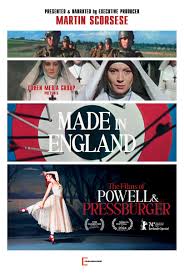
MADE IN ENGLAND: THE FILMS OF POWELL AND PRESSBURGER
UK/US, 2024, 132 minutes, Colour.
Martin Scorsese.
Directed by David Hinton.
This is a filmed masterclass with Martin Scorsese, talking to camera, but speaking earnestly and always interestingly to the cinema audience.
From his childhood, seeing The Red Shoes, he has been enthusiastic for the films of Michael Powell and Emeric Pressburger. In his early years of making films, he corresponded with Michael Powell. And, Powell, in his retirement, moved to Los Angeles, a strong friendship with Scorsese over many years. Scorsese had studied with Thelma Schoenmaker who married Powell and who has been the editor of Scorsese’s films for over 40 years.
This is the background for Scorsese’s enthusiasm.
Scorsese makes his audience comfortable with scenes from the films, with photos and clips of the two directors, an enjoyable introduction and he moves to a biography of Powell, very British in his way. Then a biography of Pressburger, born in Hungary, working in Germany, then in France and moving to England, learning the language, becoming a master of the language.
There is an overview of Powell’s early career, working in studios in Nice in the 1930s with American director, the imaginative Rex Ingram. Then a number of small features in England. His first major film was set in Scotland, Edge of the World. And, as with all the films that follow, extensive clips from the films and analysis by Scorsese himself, of technique and style, of themes, of issues, artistic, political…
The first collaboration between Powell and Pressburger was in 1939, the year of the outbreak of World War II, a spy film, The Spy in Black. During the 40s, they had an extraordinary career. Pressburger was the writer, coproducing with Powell as director. There were not only friends, but there was of professional love and friendship between them, never an ill word against each other, even when there was a parting of the ways in the late 1950s. There are many interviews with each of the throughout the film and quite a number of interviews, judging by their ages, and appearance, over several decades. And, finally an award, presented by Deborah Kerr, star of two of the most significant films.
World War II provided a strong occasion for their filmmaking and insights, beginning with The 49th Parallel, Nazi soldiers stranded in Canada, going to the German community, rejected by them. Then there was the film, disliked by Churchill, the Life and Death of Colonel Blimp, an overview of Britain at war in three stories, from the early 20th century, World War I, World War II, featuring Roger Livesy in the central role and introducing Deborah Carr in three roles, filmed when she was in her early 20s. Something of a sardonic look at changing British military attitudes and behaviour.
This was followed by a black-and-white production, A Canterbury Tale, Chaucer’s framework, again World War II. And, fostering relationship with the United States, the extraordinary fantasy, in black and white for Heaven, in colour for Earth, A Matter of Life and Death.
With the end of the war there was the light touch with the romance, I Know Where I’m Going. But a key film in this post war period, set in India but filmed in England with back drops and sets, Black Narcissus, a story of Anglican nuns from a novel by Rumer Goden. Exotic, intriguing, colourful, highly imaginative. This was followed by The Red Shoes, ballerina, Moira Shearer, persuaded to dance and at the central role, the Hans Anderson fable, the dancer, her controller – featuring Anton Walbrook, in so many of Powell and Pressburger films, and a tour de force by Australia’s Robert Helpmann.
The film traces the couples dealing with the Rank Studios, with Alexander Korda, the very small budget The Small Back Room, commercial failure in his time but interesting in retrospect. Then attempted collaboration with Sam Goldwyn, the reworking of the Scarlet Pimpernel, The Elusive Pimpernel and with David Selznick for his wife, Jennifer Jones, Gone to Earth, which was recut by Selznick and released as Wild Heart.
The 50s were difficult for the couple, the American influence, the budget for a dramatisation in dance of Tales of Hoffman, the musical of Offenbach, highly imaginative – then also cut but restored in later decades. A follow-up was Oh.. Rosalinda, based on the Strauss light operetta, Die Fledermaus, The Bat, N acquired taste for most audiences, THE popular audience put off by the music, the singing, the farcical story, the highly stylised performances. One of the reasons for seeing it is the British cast, especially Michael Redgrave singing, dancing, high kicks and leaping click of heels, a performance unlike any of his others.
Some war films in the mid-1950s, The Battle of the River Plate and Ill Met by Moonlight.
The climax of Powell’s career was the psychological/horror drama of 1960, Peeping Tom, mostly condemned by many reviewers on release, calls for it to be banned. However, again appreciated in retrospect.
Scorsese omits some of the lighter comedies and dramas Powell made from 1959 to the mid-60s, as well as some television episodes. The main feature film that Scorsese does not comment on is another of their World War II drama is, from 1942, One of Our Aircraft is missing. No explanation why comment on this film is missing.
His final work, in the second half of the 1960s, was in Australia, some clips shown from his Age of Consent, 1968. And, for Australian audience, the disappointment of a mere reference without its being named, Powell’s comedy, the archetypal “New Australian” book and comedy, They’re a Weird Mob.
Powell went to Hollywood, married, wrote his autobiography, kept in contact with Scorsese and the studios.
In fact, a master Masterclass.
Monsieur Aznavour

MONSIEUR AZNAVOUR
France, 2024, 133 minutes, Colour.
Tahar Rahim, Bastien Bouillon, Marie-Julie Baup.
Directed by Mehdi Idir, Grand Corps Malade.
French singer and entertainer, Charles’s novel, was born in 1924 and died in 2018. He was a celebrity for more than half of the 20th century, and continued as a celebrity well into the 21st-century. He was a significant figure in French culture, but also well-nine internationally, a collaborator with many sinners and a contributor to social awareness and humanitarian causes.
While the film is over two hours, it is still only an overview of the life and career of a snowball, the outline of his life, born in France to an Armenian family, growing up in Paris of the 1920s and 1930s, the experiences during World War II, the sheltering of Jews, his talent when on stage, his singing, the encounters during the 1940s, opening up all kinds of possibilities for his life – which he followed through.
While there is admiration for as an of or throughout the film, there is something of an implicit critique of him and his vision for his life, his stating that his career was the most important thing in his life, more important than any relationships. To that extent, he was single-minded, sometimes ruthless in his breaking of relationships. The film does not emphasise his humanitarian concern and public commitments which would modify the thought that the film is asking the gospel question, “what does it profit to gain the whole world and lose one’s soul?”.
Projector, Tahir Rahim, made a significant impression in 2010 in The Prophet. Since then he has had a very significant career in film and television, French films as well as international films. He enters into the persona of a snowball, his appearance, his manner and style, impersonating his answers, his singing, certainly bringing others and of all alive.
A great deal of time is spent on a snowball and his singing, his collaboration with composer and pianist, peer Roush, the encounter with Edith Piaf and her encouragement, his opening for her on tours, going to the Americas with her. There is also the story of his encounter at a performance with his first wife, their daughter, his stating to her that career was the murder most important thing in his life.
Paragraph with Roush, he was very successful, and jaunty style and popular songs. But, this was not enough. He continued to compose, over 1000 songs eventually, seen in the stair stack of red notebooks containing them. But, popularity waned, he was taunted about his appearance, height, raspy voice – and composed a series of songs which were highly personal dramatising this crisis. He went into performance, is that he did not communicate but was met with a standing ovation and acclamation. He never looked back.
As Nepal appeared in films, especially Frost/Truffaut’s captured the Pianist. The film shows his work with a number of writers, producers, his many recordings. There is his venture further to the United States, rivalling Frank Sinatra. (It is worth checking in Wikipedia to see the names of so many singers with whom he collaborated including placid Domingo, Pavarotti, Frank Sinatra, Liza Minnelli…).
In the 1960s, as Nepal encountered a Swedish model, Ulla, who wanted marriage and family. And, ultimately, this he achieved, for many decades.
An important opportunity for audiences to get to know something of Charles as Nepal as well as to hear him singing and to appreciate the impact of the wide range of his songs.
- Audience knowledge of Charles Aznavour? Entertainer, singer, in France, international reputation? International humanitarian and political causes? Dying in 2018?
- Tahar Rahim and his acting reputation, career, impersonation of CA, personality, singing, performance style, idiosyncrasies?
- Aznavour and his vast number of songs, their incorporation into the screenplay, the range and style, the lyrics, the narratives, reflecting his life, the stages of his life? The dramatic effect?
- The chronology of the story of Aznavour, the chapters, short at the beginning, longer? The difficulty of the screenplay not specifying particular times in decades, audiences trying to place Aznavour’s career and developments?
- The visuals, the first chapter and Paris, the poorer quarters, the Armenian families, restaurants, clubs? The second chapter and Aznavour growing up, at home, his talent, the audition, on stage, applause? The affirmation of his family?
- The portrait of the family, devoted father and mother, continued support, his relationship with his sister, her continued support, her own career over the years?
- The war, occupied Paris, Aznavour in his teens, singing, entertaining? The sheltering of the Jews, the Germans arriving, Aznavour hiding in the hotel opposite? Seeing the Jews transported? The atmosphere of the war, surviving in Paris, ordinary life trying to go on?
- Aznavour and his voice, raspy, his appearance, comments on his nose, short? Sometimes a disadvantage? The encounter with Pierre Rouche? His skills, piano, lyrics? Friendship, working together, appearing together, duets, success? Aznavour building up his career, charm?
- The encounter with Edith Piaf, her personality, her success, singing and style, in the streets, concerts, tours, after the war, to Canada, to the US? The encounter with Aznavour, her being intrigued, friendship, going on tour to introduce her, their being late for the train, on the bus, early, the performances? Not enough for Aznavour? Going to North America, getting the money, the travel, the visa issues, Ellis Island, singing and the approval to get in? Their work in Canada, the clubs, promotion? But not enough, Pierre wanting to stay, to marry? Aznavour going back to France?
- Singing in the clubs, meeting Charles Trenet, meeting the songwriters, his clicking with people? The song, the mother and daughter, the daughter singing, the attraction, marrying, their daughter, his being absent, indications of womanising, his wife left alone, with the daughter, his visits, distant, the separation? Further relationship with his daughter?
- The hard times, the clubs, people not listening, his continuing to compose? The further encounters with Edith Piaf?
- The film highlighting his focus on himself, self-absorption, wanting to be at the top, the continued support of his family, his declaring that his career was the most important thing in life, the drama of achieving fame, eventually achieving it, in America, Frank Sinatra, nationally, the tours, reputation, Hollywood star, awards? Yet his restlessness despite his prosperity, wealth, luxury home? Affairs? The encounter with Ulla, clash, Swedish, her returning, eventually getting together, wanting marriage, children, the relationship with her over the decades?
- His desperation, people ridiculing him, the discussions with the writers, the producers, meeting up again with Pierre? The ridicule, the composition of his autobiographical song, the important night of his life, the performance, the orchestra, his intensity, the self-revelation, behind the curtain, thinking it failed, urged to go out on bail, the acclamation?
- His successful career, the range of singers that he performed with over the decades, the encounter with Frank Sinatra, his salary?
- The film not indicating so much the political causes as well as a humanitarian commitment?
- The long life, recognition and reputation, the concerts, the number of records sold, the thousands of songs, his film appearances…?
- But implication in the screenplay of gaining the whole world and losing something of oneself?
Wadeye anniversary – first Mass 1935
Wadeye anniversary – first Mass 1935
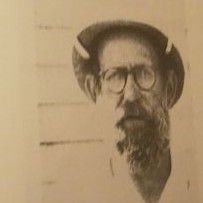
On June 23rd the community of Wadeye will celebrate 90 years since Fr Richard Docherty celebrated the first Mass on the beach at what is sometimes called Old Mission. A black and white photo of the event taken by the renowned Australian anthropologist Dr Bill Stanner shows a small group of Aboriginal people gathered for the Mass with the MSC Brothers and one or two lay missionaries.
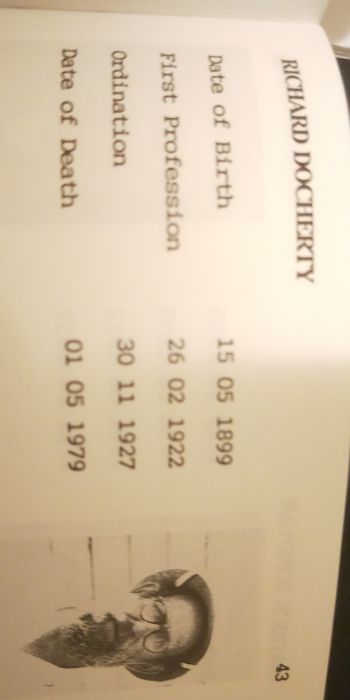
And 2025:

A Joyful Celebration: Centenary of St Thérèse of Lisieux in Moonah
A Joyful Celebration: Centenary of St Thérèse of Lisieux in Moonah
with thanks to Fr Bartha MSC, PP, for photos and text.
On a beautiful morning at St Therese’s Church, Moonah, the parish community came together to celebrate the 100th anniversary of the canonisation of St Thérèse of Lisieux. The day began with a special Mass that honoured the life and legacy of the “Little Flower,” whose message of love, humility, and trust in God continues to touch hearts around the world.
The church was filled with reverence and joy as parishioners listened to a heartfelt homily reflecting on St Thérèse’s “little way” , a path of holiness through simple acts done with great love. Her presence was felt in the gentle spirit of the liturgy, the floral arrangements that echoed her love of nature, and the quiet devotion of those in attendance.
Following the Mass, the community gathered for a morning tea in the parish hall. It was a time of connection and celebration, where stories and reflections about St Thérèse were shared over tea, coffee, and home-baked treats.
The celebration was a true testament to the strength and unity of the Moonah parish community, and to the timeless inspiration St Thérèse offers in our daily lives. As we remember her centenary, we are reminded that even the smallest acts, when done with love, can change the world.
I would like to thank the MSC family for their prayers, well wishes, and support.
Fr Bartha, MSC
Bullet Train Explosion
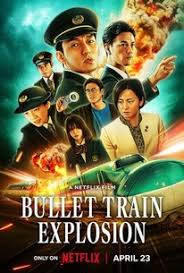
BULLET TRAIN EXPLOSION/ Shinkansen daibakuha
Japan, 2025, 134 minutes, Colour.
Tsuyoshi Kusanagi, Kanata Hosoda, Non, Hana Toyoshima
Directed by Shinji Higuchi.
In 1975, the earlier days of bullet trains, there was a thriller with that simple title, Bullet Train.
Now, 50 years later, with extensive experience of bullet trains not only in Japan but around the world, here is another thriller. While there is some focus on personal stories and characters, the main impact of the film is in its presentation of the bullet train itself, plenty of bombs, the situation of their exploding if the train went under 100 km an hour, the focus on the characters’ response, especially the guards and the driver, but the main focus and excitement of the film is the showing of the control centre, those involved, the tensions, decisions to be made, technology required.
The cinema audiences involved from the beginning with a group of children enthusing about the train and its being explained to them. And there are two sympathetic conductors, one loyal and in control, the other young and fearful. And there is a female driver, charged with the responsibility of not reducing the speed of the train. There are also a number of characters that the film focuses on, the disgraced politician, an influencer, full of himself, he decides to set up an online bank to raise the ransom money, and a disillusioned wounded man who is responsible for helicopter deaths.
However, there is a twist in the plot, quite unexpected, when the person claiming responsibility is the schoolgirl who has been behaving somewhat erratically, hiding, reserved. In the last hour, there is the revelation of her relationship with her abusive father, policeman, his role in an episode earlier, claiming to have killed the leader of a bomb planting group. Then it is revealed that she is in contact with the son of the leader who resents the girl’s father and his claim. He is interrogated, information about the situation of the bombs, and the moral situation where to stop the bombs, the girl says that they have to kill her because the connection is with her heart.
However, with frequent scenes of the train speeding through the Japanese countryside, several hours of journey, the focus is on the personnel in central control, the range of people involved, the technology, decisions to be made, political connections and interference, and some quite spectacular episodes, especially the running of a parallel train, making the link, getting tools across, the uncoupling of several carriages…
Film does build up its speeding tension with the closing of time, decisions to be made, practical efforts to be made to save the passengers.
- Straightforward title? The train, the history of the bullet train, in Japan, speeds, technology?
- The situation, passengers, the school children, the focus on the politician, the wounded man, the influence? Staff, the driver? Information about the bombs?
- The film’s focus on technology, 21st century, staff, management, skills, situations and decisions, the role of the government? The workers of the stations, the linking of the trains and the tools, the shifting of the rails? The final solution and divert the train, the crash? And the explosions?
- The atmosphere of the opening, the children, the school, the excitement of the travel? The teacher? The initial focus on Yuzuki? Different from the other students?
- The driver, her competence, demands, the high speeds, communications, with Takachai, with Fujii, the handling control? Orders, her fears, obeying orders, her hand freed from the control, the achievement?
- The guards, Takachai and his personality, loyalties, competence, interactions with the travellers, support of Fujii, communications, decisions, suggestions of going beyond Tokyo’s station, the crisis with Yuzuki, the issue of killing her, at her throat, his inability to kill her? The care of the group, of Fujii, cushions to soften the blow of the crash? The end, his achievement?
- The focus on particular passengers, the politician and her scandal, mentor, the influencer, self-importance, his decision to raise the money, the information on his phone? Fights, confrontations? The injured man, his past with the helicopter, sensitive guilt? His fighting with the group? Teacher, her concern for Yuzuki? Their being stranded on the carriage, the interactions, the issue of the killing of Yuzuki? Their inability to do it?
- The focus of the film on the control team, the leaders, their personalities, Japanese loyalties, the business, the experts, making decisions, parallel trains, the timing, the link, the toolboxes crossing, details of the uncoupling of the carriages? The exploding carriage? The issue of Tokyo’s station and devastation? To move the rails, the work begun, the political decision to stop? Issues of authority and jurisdictions? The final solution, the tension, the timing, moving the rails, separating the carriages, the crushing of the carriage, the final explosions?
- The revelation about Yuzuki, her contact with her father, the past story, his arrogance, the false reputation, the death of the bomber, the resentment of the bomber’s son, collaborating with Yuzuki, and her resentment towards her brutal father? The phone call, the interactions, pressing the bomb link and the house exploding?
- The passengers, the reaction to the news about Yuzuki, her health, the explosives connected with her heart, killing her and stopping the explosions? The discussions, their unwillingness?
- The interview with her collaborator, motivations, revenge, the setting up of the bombs? The arrest of Yuzuki, her being taken away?
- The excitement of the film, the relative importance of the personal stories compared with the tensions in the passengers and the runaway train, the authorities and technology?
Unniversal Language/ une lange universelle
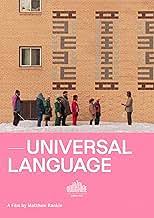
UNIVERSAL LANGUAGE/ Une langue universelle
Canada, 2024, 89 minutes, Colour.
Matthew Rankin, Pirouz Nemati.
Directed by Matthew Rankin.
Something of an enigmatic title. And, throughout the film, there are any number of enigmas to tantalise the audience (put off any of the audience who might declare themselves bewildered). However, it is worth simply entering the film, accepting its enigma and style, going with the flow (which, in fact, is in many directions), accepting that we have no idea where it is a leading, more and more relishing the strange mix of characters, situations, deadly serious moments, so many humorous moments, many visual and verbal jokes.
This is a Canadian film, Canada not having a universal language. But, writer-director, Matthew Rankin, has been a strong admirer of Iranians films, especially in the 1990s-2000s, the focus on children, children and parents, strange characters and adventures, and visual storytelling. It is made the decision to use Farsi as the main language of this film, no English, some moments of French.
And the setting of the story is Winnipeg (everybody thinking it is in Alberta and the characters insisting it is the capital of Manitoba!). And there are some scenes in Quebec/ Montréal but it is the city that people leave for Winnipeg. With the dialogue all in Farsi, Farsi signs all over the city, very much a look like Iran, critics have said that the film is situated somewhere between Teheran and Winnipeg.
The film has a distinctive visual style. Often the camera is placed at a distance, static shots of buildings, arches, with interactions in the background of the scene (the city having beige and grey neighbourhoods). At times are very vivid close-ups. In the opening is disconcerting, a long shot of classroom building, viewing through the window the children mucking around, the severe teacher arriving, taking control and systematically bullying and humiliating the students, then walking out after sending them all into the cupboards.
Where is this going? And the answer to that question is that audiences will have to go and see for themselves.
Matthew Rankin appears as a character, called Matthew Rankin (audiences perhaps finding it very hard to reconcile this somewhat reclusive character with the writer and director of all this imaginative plotting). He is returning from Montréal to visit his mother. He encounters a range of characters, especially Massoud, a guide around the so-called sights of Winnipeg, an empty mall, police not allowing loitering, a public bench where an unopened bag was left in 1978…!!
And, there are some children, a little boy who has lost his glasses, two little girls who go to help him retrieve then from the turkey which attacked him (and, by the way, turkeys are prominent throughout the film, in TV commercials, in restaurants, bus passengers…) who find expensive note buried in the ice of the street.
Actually, it does all come together in the end, quite surprisingly, and more than a suggestion that being humane is the universal language.
(This reviewer, both bewildered and entertained, decided to look at some of the reviews of Universal Language and was quite delighted with critics listing so many moments that were arresting, funny, enjoyable, that it is well worthwhile looking at the lists, making one’s own list, to appreciate how much meaningful detail there was throughout the film. Try https://www.latimes.com/entertainment-arts/movies/story/2025-02-13/universal-language-review-matthew-rankin-guy-maddin
https://www.rogerebert.com/reviews/universal-language-film-review-2025)
- The impact of the film, serious, comic, absurdist? Canadian made, Canadian perspective, images of French Canada, Québec, Montréal, images of English Canada, Winnipeg?
- The title, language, the decision to use Farsi, hearing it, the signs in Farsi lettering, the characters, Canadian appearance, Iranian appearance?, And that the setting is somewhere between Teher the tour of the city, an and Winnipeg? The visuals, the cultural references?
- Audiences going with the flow, situations, characters, episodes, connections, interactions, everything coming together at the end? Shared humanity?
- The visual style, fixed camera sequences, observing action from afar with a static camera, close-ups by contrast? Beige and grey buildings and districts? The insertion of the television ads, humorous and satiric?
- The opening, the school, the children playing up, the teacher arriving, his introduction, with-it, questioning the children, humiliating them, Omid and his glasses, asking the children what they wanted to be, the variety of answers, the boy as Groucho Marx, the teacher insulting them, sending them all into the cupboard? His leaving?
- Omid, lost glasses, the fight with the turkey, two girls finding the expensive bill in the ice, encountering Massoud, his sending them away, all the sequences of their trying to find the tools, asking directions, the shops, reactions, kindly, unkindly, the return, the note gone? Suspicions of the stranger?
- Matthew Rankin, to return to Winnipeg, the interview with the government boss, fat, eating the turkey, the sounds of the bureaucrat weeping in the stall? On the bus, sitting next to the teacher, audiences realising that this was before the classroom episode? The lady with the turkey sitting next to her on the bus, Matthew asleep, the bus breaking down, his getting to the city?
- Tour of the city, the group, complaints, 30 minutes silence, the founder of Winnipeg and the tribute, the empty mall, the briefcase on the bench…?
- Matthew, wandering the city, watching the tour guide, going to the restaurant, the turkey, the man singing the song about the turkey? The girls arriving, asking his help, his going with them, the money gone? This meeting up with Massoud, Massoud and his family caring for Matthew’s mother, the family living with the mother, the revelation that Omid was his son? And that he had taken the ice with the money?
- The girls arriving to see Omid, seeing that Massoud had taken the ice with the money, recognising Matthew? His mother and care for the family?
- Massoud, taking the ice back, burying it, his prayer?
- The strands of the plot all coming together? In favour of universal language of humanity?
- The after-effect of the film, reflecting on it, the conceit of having a city between Teheran and Winnipeg, Farsi language, the satirical aspects, the serious aspects, the role of the children, compared with the adults? And reflecting on so many entertaining moments?
Salt Path, The
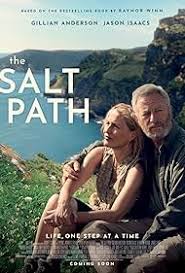
THE SALT PATH
A, 2024, 115 minutes, Colour.
Gillian Anderson, Jason Isaacs, Hermione Norris.
Directed by Marianne Elliott.
The depth of enjoyment of The Salt Path may well depend on how audiences identify with walking, hiking, or being observers and admirers of walkers and hikers. The Path runs along the south-western part of the coast of England, several hundred miles of walking, hills, beaches, crags and cliffs, passing through small towns. And this is where the audience accompanies the central characters, husband and wife of many years, Moth and Ray.
The strength of the film is very much due to the central performances. Gillian Anderson is the wife, Ray, Raynor Winn the author of the bestselling book on which the film is based (and she serves as one of the producers). Jason Isaacs is Moth, the husband, a strong character, but diagnosed with a rare and severe illness, impairing action in his life side, his limp, difficulty in swallowing, but a determination to live with but go beyond his illness.
There have been married for many years and the two actors are able to convey most powerfully the bond between the husband and wife, love, the devotion, the care, the mutual understanding and appreciation. This perspective is one of the great values of the film.
However, hard times. Business difficulties, unfamiliarity with the law and their losing their case, leading to the loss of their farm. They are homeless and make the decision to walk, following the path to Lands End.
As suggested, enjoyment of the film will depend on audience response to walking, identifying and sharing the literal ups and downs, difficulties and joys, encounters with cranky people objecting to them camping, friendly people who are supportive with food. The couple had very little money, their tent and all their belongings in their packs, and they walk. Walkers will appreciate their journey, hikers will be able to make comparisons from their own experiences. And the rest of us will be watching with some kind of admiration with moments of apprehension.
The look of the film is very British, the characters, the landscapes, behaviour in the towns but with some moments of exhilaration as, stuck for money, Moth being identified wrongly with poet who is doing the walk, his actually making a powerful recitation of poetry in a town square, and the admiring audience willing to add to the collection.
They do have a friend, Polly, who does offer some help, accommodation, Moth doing repairs and, surprisingly, Ray working hard in a shearing shed, wool collecting, giving them some money to establish themselves.
The film has been directed by Marianne Elliott, a director better known for screen adaptations of theatre performances of significant plays, Alls Well that Ends Well, Angels in America, War Horse.
The finale offers interesting information, the decisions that Moth and Ray make about further studies, helping local farmers, and the status of Moth’s health. Ray’s account of the walk and their situation was a bestseller, an inspiration to the many who have read it. And the film will and to this admiration.
- The title, the name of the walk, South-west England, the coast, the rugged cliffs, the sea, the hills, the paths, the towns? The musical score?
- Based on a true story, the central characters, their financial situation and the farm, the decision to walk, Moth and his rare disease? The episode on the walk, people encountered, friendly, hostile? The achievement?
- The final information, Moth and his studies, health? Ray, her work, writing the book, success? Producer on this film?
- The situation, business, the law, losing the case, the abrupt reaction of the lawyers and departure, losing their house? The meeting with their children, the bonds with their children, their studies? Homeless, the decision to walk?
- The bond between Moth and Ray, the years of marriage, their love, devotion, care? The flashbacks during the walk, filling in something of the story? The scenes of love and tenderness between them?
- Moth, his age, the visits to the doctor, diagnosis of his illness, Ray unwilling and denying? Moth and his medication, determination, not taking the medication, difficulties in walking, his left side, difficulties in swallowing? The prognosis? Episodes during the walk? Yet his continued determination?
- Ray, strength of character, decisions, money, the maps, her making annotations? The financial situation, Moth and his grant, bank account, the withdrawal, lacking money? And the episode of Moth and his recitation in the square, the happy response, the collection? And later Ray giving money to Sealy?
- The development of character during the walk, the indications of distances walked, Moth, agreeable and friendly, determined, his turn and illness? Ray, determination, support?
- Cranky passers-by, criticising them camping, the proprietor closing the shop, no Cornish pasties? The sympathetic server, giving them the pasties, the scene with her boyfriend? Friendly passers-by and comments?
- Sealy, her aggressive boyfriend, the invitation to follow, her walking behind, joining them, the effect on her, encouragement, going home, Ray giving her some money?
- Polly, friendship, critical, supportive, eventually allowing them to stay, Moth and his repairs, offering them some security? Ray and her working in the wool shed? Payment and support?
- Their adventures, the opening sequence and the tide coming in, its repetition later, old, clothes, washing, food, noodles or pasta, the bottles of water?
- The episode with Sealy, friendship, her arrogant boyfriend, the invitation, her following, the walking and sharing, cabarets encouragement, her return?
- Audience identification with Moth and Ray, the situation, the homelessness, the walking, the struggles, the achievement?
Surfer, The/ 2024
THE SURFER
Australia/Ireland, 2024, 104 minutes, Colour.
Nicolas Cage, Julian McMahon, Finn Little, Miranda Tapsell, Justin Wozniak, Rahel Romahn.
Directed by Lorcan Finnegan.
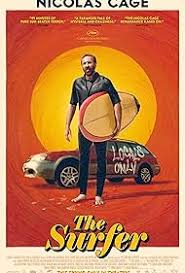
Endurance is key.
Nicolas Cage plays The Surfer”, an Australian, brought up on the West Australian coast, spending time in the US (hence the accent), wanting to recover and buy his father’s home, bringing his teenage son to is one with him to revive his memories and hand on tradition. So far, so good. However, the locals are aggressive, pugnacious, not letting anyone to surf unless they live in the area. And so begins a series of insults, humiliations, vicious attacks, cruel behaviour, with The Server as victim. So, here is the endurance.
But, as we watch, the word endurance also comes to mind, our endurance as we sit watching this cumulative impact of brutality and its effect on The Surfer. Watching it is very tough going.
In realism terms, audiences were probably anticipating that he and his son would leave after the first confrontation. But, no. The Surfer remains, becoming more and more obstinate and obdurate, the physical and psychological onslaught beginning to take its toll but rendering him more stubborn. He should have got in his car and driven away, but…
The portrayal of the clique of surfers certainly raises a key issue of contemporary society, the place of men, critique of patriarchal ways, the response of male assertion, few holds barred. The sequences with the group dramatise some of the aspects of the Andrew Tait and followers promotion of what it is to be for males. In fact, here the group is presented as something of a cult, led by a local, who bullied The Surfer at school, Scally, played as smugly assured by Julian McMahon. He has a philosophy of maleness, the reality and symbol of surfing, but gathering the young men around him even with an immersing ceremony inducting them into his cult.
There is also an older man, somewhat deranged, who hovers, talks with The Surfer, has a grievance of his own with Scally, and also has a gun…
Now and again there is a sympathetic character or two helping The Surfer, notably a photographer played by Miranda Tapsell. But, there are a lot of unpleasant characters, especially the local police officer, the proprietor of a drinks van, who certainly alienate the audience as well.
So, how do we endure this experience? Initially a certain empathy with The Surfer but then our dismay and exasperation, sharing what he suffers and at times this is considerable, but exasperated as he stays on – and, trying to deal with his final confrontation with Scally, the psychological consequences, the confrontation with the mad old man, and the return of his son.
This is an Australian/Irish co-production. The writer, Thomas Martin, and the director, Lorcan Finnegan, both Irish, their interpretation of an Australian coastal community, seemingly relishing some portraits of the Ugly Australian. Some commentators have noted that they are particularly fond of Australian films from the 1970s, especially, small-budget thrillers, often with horror touches, nicknamed Ozploitation. No flattery for Australia or Australian is here!
But, this is a Nicolas Cage film. Over the last decade and more he has made several films each year, often strange and wild characters, all kinds of genres from westerns to horror. But, he has built up a huge number of fans who want to see his films, no matter what, many articles written about him, his place in popular American cinema. Nicolas Cage completists will certainly want to see this film and connect it with his others. But, for many wanting to see an Australian film with Nicolas Cage, this will be something of a bewilderment.
RIP, Noel Mansfield MSC
RIP, Noel Mansfield MSC

We received the sad news that Fr. Noel Mansfield MSC, passed away today at 3.30 pm at Prince of Wales (PoW) Hospital, Randwick, NSW.
Noel had been at St Joseph's Aged Care, Kensington, NSW, in recent years as his health declined and he needed more assistance. He was admitted to PoW last week.
Noel was a student at Downlands College for four years before completing his final year of secondary school studies at the Apostolic School at St Mary’s Towers, Douglas Park. He was professed on 26 February 1953.
Over the years, Noel was appointed to a number of our colleges, as a missionary in Papua New Guinea, as part of the Retreat team, and in parish ministry.
Noel was 72 years a professed MSC, with 58 years of priestly ministry. He celebrated his 92nd birthday on January 1st.

